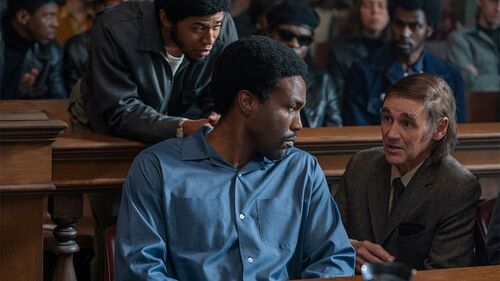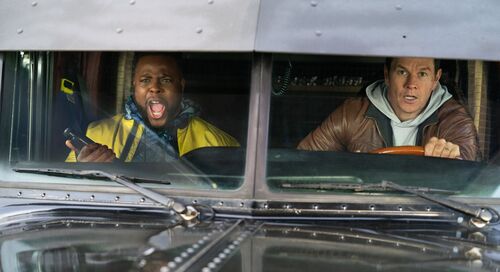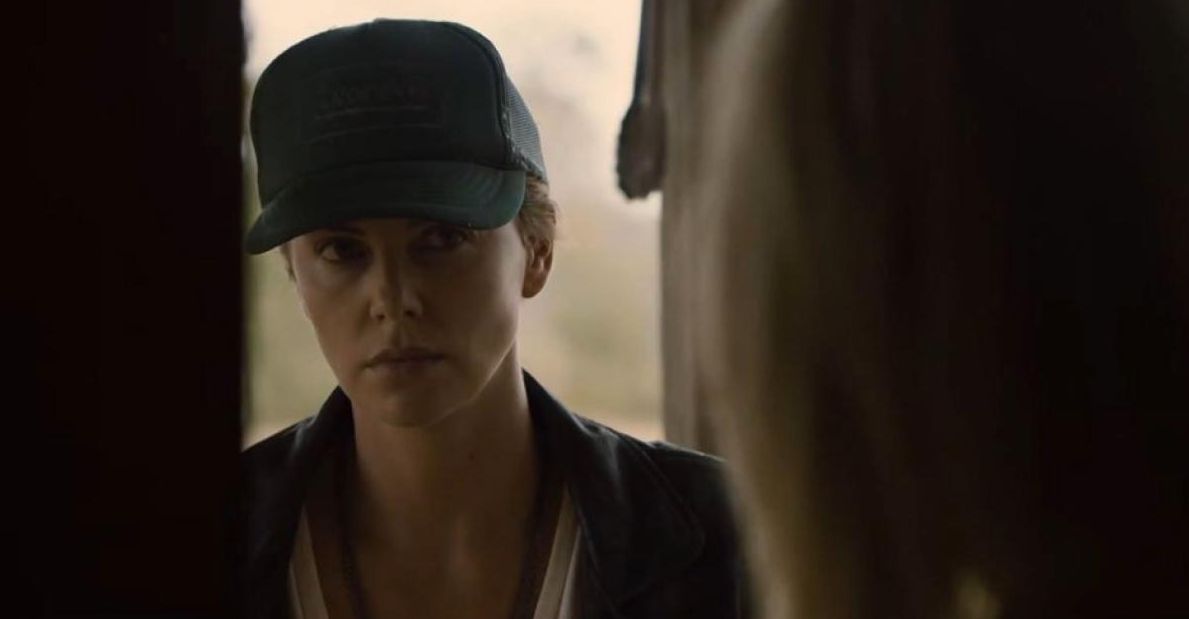
Dark Places
 It’s a bit unfair to bring up Gillian Flynn and David Fincher’s exceptional adaptation of Gone Girl when talking about the latest Flynn book adaptation, Dark Places, so I'll pass on that. Gilles Paquet-Brenner’s adaptation is as nuts and bolts as they come, and whilst it isn’t a badly made movie, the material still wanted for some incisiveness and invention to elevate it. Paquet-Brenner assembles an exceptional cast, but they just coast their way through this film in roles that demanded more depth and a story, some flair.
It’s a bit unfair to bring up Gillian Flynn and David Fincher’s exceptional adaptation of Gone Girl when talking about the latest Flynn book adaptation, Dark Places, so I'll pass on that. Gilles Paquet-Brenner’s adaptation is as nuts and bolts as they come, and whilst it isn’t a badly made movie, the material still wanted for some incisiveness and invention to elevate it. Paquet-Brenner assembles an exceptional cast, but they just coast their way through this film in roles that demanded more depth and a story, some flair.
Dark Places tells the story of Libby Day. As a child 25 years ago (played by Sterling Jerins) her mother and sisters are viciously murdered one night and her older brother Ben (Tye Sheridan) is arrested and sentenced for the crimes on very little evidence and his youngest sister’s testimony. There is a lot of media fanfare following this case and Ben’s dabbling in the dark arts of Satanism is well publicised, and that probably condemns him in the court of public opinion even before Libby’s testimony. Fast forward to present day and a grown up Libby (Charlize Theron) is confronted with her dark past by a crime club known as the “Kill Club”. The club researches and collects items from high profile murders and they are convinced there is more to the Day family murders. Libby is contacted by Lyle Wirth (Nicholas Hoult), a member of the club, and he convinces Libby to tell her story to the club for some cash. She is broke and needs the money.
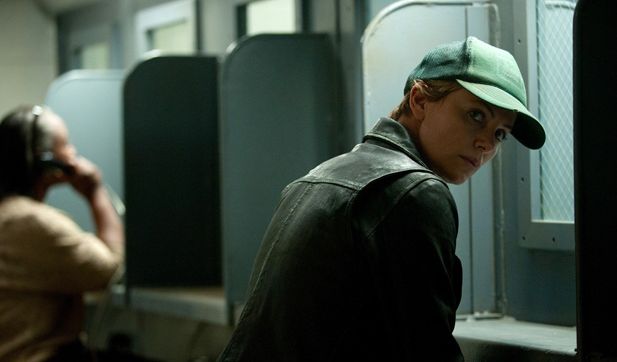
We come to learn Lyle is really convinced Ben is innocent and he eventually talks Libby into committing to open the doors to that tragic moment in time. Libby hasn’t been in touch with the incarcerated brother (Corey Stoll) since the night of the murders and she makes her way to the prisons to get some more details on the night. Ben seems more content with life than her, and you get the sense he has moved past that night whilst Libby looks bitter and unfulfilled. It’s moments like these that try to play Libby as a woman haunted by memories, but she rather comes off like a reporter or a member of the crime club looking for a story. There is no difference between her character and Hoult’s. The film uses her to move the investigation by having her plough through characters from her past, ranging from her vile absent father to the girl who accused Ben of pedophilia to some of Ben’s Satanist buddies (Ben didn’t have the best of reps) as they just spew more stories at her.
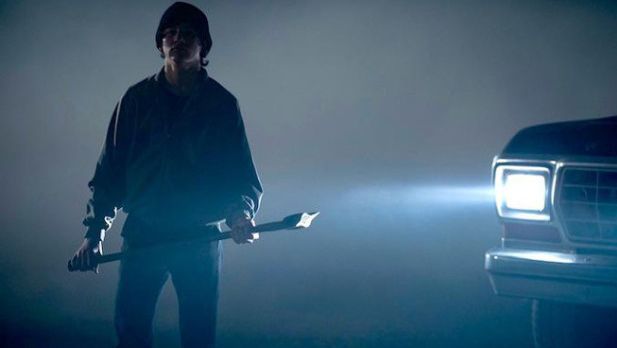
The film tries to give us a clearer picture by cutting back and forth between present day and the period leading up to the murder. We get snippets of a potentially weighty narrative, but our director hesitates and fails to sink his teeth into the material. There is a real ominous pathology at work here in the fascination with the occult and Satanism ripe for exploring, but Paquet-Brenner really misses the opportunity to build a uniquely dark world and tell a really bleak story. We also have the thread involving Libby’s mother (Christina Hendricks), who is on the verge of losing her farm and struggles to make ends meet. I have already noted Libby’s non-existent father. You would think this plot thread is heading somewhere compelling, and to Hendricks’ credit it looks like it is for a minute, but when the payoff comes we are left with something woefully uninspiring and unsympathetic to muse over.
The film just hinges of reveals and Paquet-Brenner seems content to just scratch the surface of this story and never builds a connection with his characters. I have no doubt there are dark places to be explored in Libby's story, and maybe the novel makes for more a more compelling experience than its cinematic counterpart. It’s a bit of a shame our director is simply too afraid of the dark.
